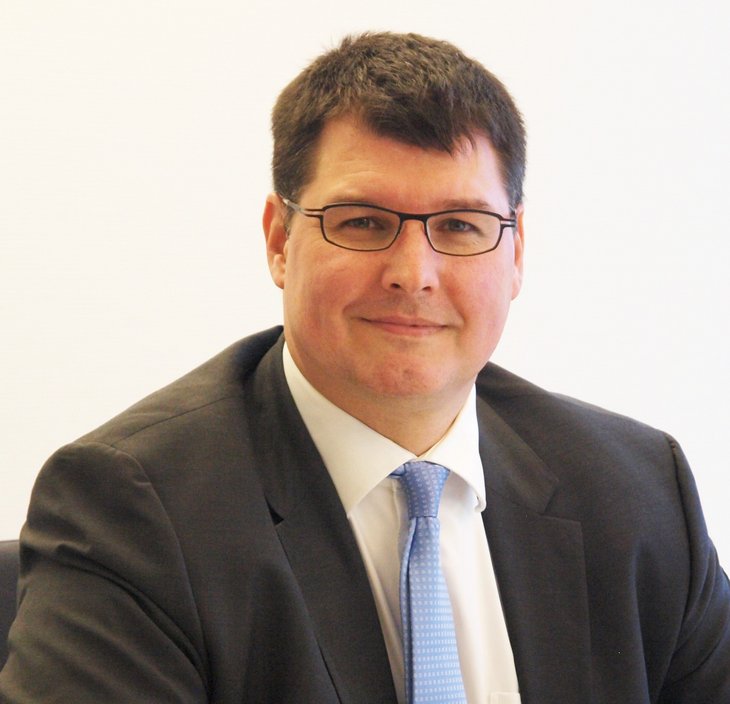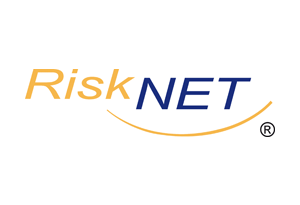Political and social risks, economic disagreements and increasing digitalisation – with rising volumes of data to be analysed – the insurance industry has to cope with a very heavy burden. We spoke to Guido Vos, in his role as Executive Head of Risk Underwriting at Euler Hermes Deutschland, about the field of opportunity and risk management in uncertain times.
Country risks and geopolitical risks have become an important component of analyses in the finance and insurance industry. How does Euler Hermes generate, process and analyse this data?
Guido Vos: Euler Hermes has over 50 offices worldwide and assesses risks in more than 200 countries. Around 1,300 credit analysts analyse around 2 million sets of annual accounts every year, which are stored in an EH Group database. In addition, our experts conduct around 500,000 interviews per year to analyse companies’ specific risk profiles. This corresponds to approximately 2,000 qualified contacts worldwide per day. The information is recorded in our systems and continuously monitored. This provides us with a solid basis for identifying positive and also negative trends very quickly. The key features of Euler Hermes are our international network of experts and our worldwide credit checking and credit rating system. This system includes ratings for international corporations, as well as small local players from all industries.
Looking at the shaky economic union in Europe, is there not a risk of a breakdown of the EU economy and internal market itself?
Guido Vos: The political risks in Europe have increased significantly compared to 2015. Anti-European propaganda is being widely used in many countries in Europe, particularly in election campaigns. After Brexit, different election results in the Netherlands and France would definitely have had a serious impact on the European Union and possibly encouraged more exit moves. The election of Emmanuel Macron in France and the defeat of Geert Wilders in the Netherlands has brought a slight reduction in tension, at least for the immediate future.
In what countries do you currently see the biggest dangers in terms of possible default risks for investors and why?
Guido Vos: Euler Hermes continuously monitors global economic developments. You can view these developments in the Euler Hermes Economic Research app. Worldwide, we expect to see an end to the decline in insolvency figures in 2017. However, the trends differ between regions. In Europe, we expect a continuing friendly environment with falling insolvency figures, while by contrast we are anticipating rising insolvency figures for Latin America, Asia Pacific and North America. From a country perspective, we can currently see problematic trends in Latin and South America in particular, and also in some emerging markets.
What risk factors do you include in your assessments and analyses?
Guido Vos: In risk management, we differentiate between cyclic and acyclic industries. Macroeconomic developments generally only influence acyclic industries, such as the food industry, in the very short term. In cyclic industries, such as engineering, on the other hand order books tend to fill up or empty with a time lag. Depending on the industries and regions, different factors can have a significant effect on risks with different weightings. These include energy prices or political decisions such as environmental requirements, tariffs or tax changes. Social changes relating to lifestyles or new priorities should not be underestimated either. Just think of concepts like car sharing or the trend towards vegan nutrition.
When it came to Brexit, and also in assessments of the US election, many analysts’ forecasts turned out to be incorrect. Does this mean that the huge volume of data is not matched by a corresponding level of authority in all areas of economics, politics and society?
Guido Vos: Forecasting accuracy always depends on data quality. This has been a key issue in the Euler Hermes Group’s business model for a long time. Around 20 years ago, financial service providers were faced with the challenge of obtaining data relevant for credit ratings such as balance sheets or banking information. Today, they have to be selective in picking out the specific information from a huge flood of data that will provide added value in a risk assessment.
Talking of authority, how do analysis methods have to develop to enable them to effectively identify links and perform evaluations with all the information in the future?
Guido Vos: We believe that our continuous monitoring of information in our electronic systems and our specialist expert knowledge are crucial in identifying meaningful links in data in the context of current economic and political conditions.
Let’s get back to Euler Hermes. What methods do you use at Euler Hermes as part of your risk management?
Guido Vos: Consider the fact that, in Germany alone, we insure around 400,000 active risks across all Euler Hermes business units. This complexity calls for exceptional expert knowledge. We have responded by setting up specialist industry teams. These teams use our internal database and the relevant economic developments to come up with relevant results for their industries. In this context, credit risks are an important component of risk management.
Do your analyses include a view of opportunities?
Guido Vos: Of course. In the shadow of risks, there are also opportunities. For example, let’s take the case of the food industry – a spoiled meat scandal a few weeks ago has had a hugely detrimental impact on Brazil’s reputation as the world’s largest meat exporter. Because of the export restrictions, some companies had to file for bankruptcy or were no longer able to supply the agreed quantities. However, this does not change the international demand for meat. As a result, this situation throws up opportunities for meat companies in other countries.
In practice, your customers have valuable early warning and risk information that could be a valuable input for your rating systems. How do you share risk information between insurance companies and your risk analysts? Is there a structured process or is it more informal?
Guido Vos: Both, and on both sides. Insurance companies have an obligation to report changes in risk to us, for example delayed payments from consumers. In addition, our customers are involved in regular discussions with their partners or our employees. If negative trends emerge, the information is shared immediately.
A key buzzword at the moment is digitalisation. The banking sector is making massive efforts to drive digitalisation. This includes Commerzbank with its strategy geared towards Banking 4.0. How do you assess these developments, particularly in terms of established online banks and business with private and corporate customers?
Guido Vos: Digitalisation is also a very live issue in the insurance industry. Some time ago, Euler Hermes set up projects that aim to benefit our customers by analysing and implementing the advantages of digitalisation in terms of improved efficiency of internal processes. We believe this trend is externally irreversible. Although we are confident that a majority of customers still want qualified advice, particularly on coverage issues, there are an increasing number, especially among younger customers, who prefer digital solution concepts.
Many companies transfer their risks to a credit insurer to protect against bad debt losses caused by insolvency of a client. Policyholders frequently raise criticism that insurers always reduce their limits when things get serious and the risks increase. How do you respond to this criticism?
Guido Vos: We always take this criticism seriously, even though we are unable to acknowledge it. We want to guarantee an appropriate risk transfer at a reasonable price. The new Euler Hermes products in Germany, which supplement our standard trade credit insurance business, guarantee the customer extended risk transfer. They include extended coverage. This means that customers can depend on existing contracts being covered until delivery even after expiry of the insurance protection. The extension period is contractually agreed and can normally be between ten days and a month. Our customers also continue to benefit from EH Deutschland CAP products. For CAP products, we provide insurance protection for critical risks that have a high probability of default. Risk transfer is based on the risk based pricing model.

Guido Vos has been Executive Head of Risk Underwriting at Euler Hermes Deutschland since October 1, 2016. Before joining Euler Hermes Deutschland, he was the divisional manager and industry head for risk management for business customers at Commerzbank AG.


